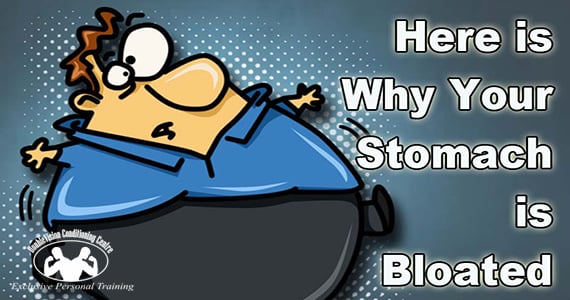
Highlights of the Podcast:
- You’re doing all the right things, but you’re still not losing weight
- The gastrointestinal system responds positively or negatively to food
- 70% of the entire immune system is housed in the G.I. tract
- Food intolerance’s and its effects on the body
- You need to start being conscious about your eating behaviors
- You can have an intolerance test done, but it’s expensive
- The “Elimination Diet”
- Food intolerance’s trigger the creation of Cortisol
Transcript:
Hello and welcome to another new episode of the TheDVCC.com podcast. I’m Mark Gray.
Stephen: And I am Stephen.
Mark: So, I hope you’re well. I’ve just got a bit of weather update for you. At the weekend it’s going to be 21 degrees. So if you’re listening to this in, I don’t know, December next year, it probably won’t be. But this weekend in April, it’s going to be 21 degrees, which makes a change from the snow we were experiencing a couple of weeks ago. Very balmy weather.
Stephen: Hmm, lovely!
Mark: So, today, Stephen, we’re going to be talking about what?
Stephen: Today, we’re going to be talking about what happens if you’ve got your diet and exercise sorted. Let’s imagine your social networks or the people that you surround yourself with is great or they’re all good people to help you towards what you’re trying to achieve when we’re talking about weight loss. And you’ve got your psychology sorted so your brain and everything you’re thinking about and things like that are all congruent with what you’re trying to achieve. But, you still can’t lose weight.
Mark: Right. So basically, you are doing everything that you feel is needed to lose weight. You’re doing everything right. You’re working out very hard. You feel like your weight…
Stephen: You’re working out in the correct way.
Mark: Yes. Okay. Using resistance work and maybe some interval type training as well. You’re ticking all the boxes, but you are simply not losing weight. And when we say not losing weight, we’re talking not losing fat as well, or just specifically just weight.
Stephen: What we’re talking, we’re always talking fat. But yes, that would apply to – it’s easier if someone knows that they have – like we have at our Bedford and Milton Keynes Personal Training Studios, we have our body fat machine, a machine that tells us if it’s fat you’re losing or muscle. Your muscle tone you’re keeping or if it’s just muscle you’re losing. But yes, we’ll be talking weight. So if you’ve only got a normal set of scales at home, the best thing you can do actually to complement the weighing of the scales is to use tape measurement.
Mark: Right.
Stephen: So if your tape measurements – basically, if you’re not coming down in size.
Mark: Right. Okay. So everything else is how it should be, but it’s simply your results are not coming. We’re going to be discussing what can be done.
Stephen: What’s the next thing to look at. What you should look at.
Mark: Okay. Before that, do we have any housekeeping things? Just a word on the blog, on the TheDVCC.com blog. We’ve now got Facebook comments. So after all the posts, I’d really appreciate if you comment using Facebook. I have to get rid of the WordPress – that’s the site – comments at the moment because we’re getting loads of spam. And realistically, I don’t think anyone wants to hear about Lalita or whatever that kind of spam comment is. I turn around and there’s like a thousand something and I have to go through and get rid of all of the spam ones and keep the normal ones. Maybe I might have got rid of yours because I thought it was spam. I apologize but if it mentioned anything to do with getting something bigger or pills, or anything like that, then yes, it wasn’t for me.
Stephen: It’s bankrupting Mark. He buys everything.
Mark: [Laughs] Yes. No, I have to try before I buy and I try before I recommend. Anyway, moving on…
Stephen: So, the thing to look at, if you’ve got all those boxes ticked, like we talked about, is your stomach. That’s literally the next best thing to look at. Particular – now, this is very applicable. Whenever we do these podcasts, we’re thinking about our clients and the people that we meet and what can benefit them. So when a lot of people we meet, a lot of our clients, have a history of maybe doing certain diets, doing different things where it resulted in binging and eating unhealthy sorts of foods over time, then that’s why the stomach is such a great thing to look at, to try and improve, and to try and fix actually.
Mark: So when you say looking at the stomach…
Stephen: When I say stomach, I say G.I.
Mark: Right. Okay. So basically, just for you listening, when Stephen says “stomach,” he doesn’t mean literally look at your stomach. He’s talking about how your stomach feels and how it reacts to certain things. Okay?
Stephen: Well, yes. Because your body responds to everything that you put in your mouth. So there is that saying about you wouldn’t feed a Ferrari rubbish fuel, and they talk about that being the same as food. But that’s not actually necessarily strictly true because literally anything you put in your mouth actually has an impact in the G.I. tract. So we’re talking about the G.I. system. So in your actual digestive tract, you’ve got a completely independent nervous
system, which basically means in layman’s terms, your body will respond to everything you put in your mouth. So, if you want to look at it simply, it will respond in a good way or a bad way. Does that make sense?
Mark: And I’ll repeat that. So basically, you’re saying that your stomach can kind of be thought of as separate.
Stephen: Yes.
Mark: Explain that bit again.
Stephen: The whole G.I., so the whole…
Mark: What’s G.I.?
Stephen: Gastrointestinal.
Mark: There we go.
Stephen: I don’t want to get too…
Mark: But you’re saying G.I., so we need to know.
Stephen: Yes. So basically, anything you put into your mouth that enters the G.I. system has an impact.
Mark: On?
Stephen: On either a good or a bad impact. So, we’ll go into a bit more depth about what it can do, but just the fact that…
Mark: So you see, I just want to interject. I just wanted to speak to the listeners. Now you obviously see my role is to try and tame Stephen’s scientific geeky language so that it’s understood by most of us because sometimes he can come up with words that are very fine for people in the know, but most people wouldn’t know that a G.I. tract stands for gastrointestinal tract. Okay? I just want to point that out to people and apologize on behalf of Stephen, and he’s going to try and speak in a more accessible language.
Stephen: I should just really speak in the way I have to speak to you for you to understand it anyway, really. Shouldn’t I? [Laughs] So anyway, that actually comes into being because 70% of your body’s entire immune system is actually housed in the G.I. tract. So I can’t just say stomach because that’s not true, and then I’ll have someone pull me up on it saying it’s not actually some…
Mark: Well, let’s rephrase it as basically anywhere where food is digested. So your intestines, small intestine, large intestine, the stomach, throat and everything like that. So it’s the whole system, the whole G.I.
Stephen: So let’s put a caveat then. We are going to refer to it as the stomach, but it includes all of those things that you just mentioned. Okay?
Mark: Yes. That’s right. So 70% of your immune system is actually housed in your stomach. So that’s why it makes sense that when people eat poorly – so Easter, Christmas and things. They eat lots of sugar and things like that. That can actually lower your immune system. So actually, when you talk about disease management and fighting against disease, what you eat could become so important because your immune system is obviously what your body naturally uses to defend itself against all of these things that attack us day-to-day.
Stephen: Right. That makes sense. That makes much more sense now.
Mark: So, there are quite a few different things that can actually impact the G.I. tract negatively. So it therefore makes sense that you’re looking at what you’re doing that is positive or negative towards your own G.I. tract, e.g. stomach, sorry. So what you’re doing that can negatively affect your stomach because by negatively affecting your stomach, you are negatively affecting your fat loss efforts.
Stephen: So when you say what you’re doing, you mean what you’re eating and what you put in your mouth.
Mark: Basically, we’re looking at what you’re eating. So, this is where we’re actually moving on to food intolerance’s because food intolerance’s or food sensitivities can have a massive impact on what your body does. So when I talked about what negative things you can do that actually impact your stomach, the foods that you eat would be the biggest thing.
Stephen: Right. So just putting it down into, like you say, layman’s terms, everything you eat is either going to be positive for your body or negative for your body.
Mark: Correct.
Stephen: And it’s not as simple as…
Mark: Yes. And then what’s different. That’s the point I think that needs to be made as well, is that something that you could eat and that I could eat would have a different reaction in my body. And we’ve had tests done actually that even genetically identical twins have different intolerance’s for different foods, and that’s because obviously we haven’t eaten exactly the same throughout our lives. So that’s going to be even more apparent between people, people who aren’t twins.
Stephen: Well this is the thing as well, because people I think will automatically think, well, surely I just have to eat healthily. Healthy foods won’t cause a reaction in my body. Therefore, they can’t be negatively affecting fat loss, can they? Which is not actually strictly true. Like Mark said, we’ve both had intolerance tests. Actually, we’ve had them done three times now, I think, didn’t we? And they change. Basically, what happens is your body can develop intolerance’s, sensitivities by you can be overdoing something. So eating something too much over time, you can develop intolerance’s. And actually, simply from being a child, you kind of develop them from where you could actually be genetically intolerant to certain foods. So unfortunately, it’s not as simple as just saying, “Oh, I’ll just eat healthily.” I mean, obviously, that has a massive impact, but like we said at the beginning, we’re talking about people that have all those boxes ticked and find that things still aren’t working quite correctly.
Mark: So then, ask yourself this. Are you doing what you believe is correct for weight loss/fat loss, and are you still not losing weight? Now, the next question is to ask, how do you feel after eating food and certain foods? You need to start being conscious. It’s just kind of brought home to me, actually, a lady I was listening. She was outside somewhere. I was just overhearing her conversation, being a – not a peeping tom. That’s the wrong word. But basically, she was saying how she feels so good now, and then ate some bad food. I think it was on a Friday night or whatever. And then felt so terrible. That is how she must have felt all the time because she used to eat those foods all the time. She said she just didn’t realize that that’s obviously how she felt. Because she felt like that all the time, she just assumed that was normal.
Stephen: Well the thing is food sensitivities or reactions kind of have actually been linked, and this has scientifically been linked to among loads of different others, but like asthma, allergies, autoimmune disorders, skin conditions, arthritis, mood disorders. Now, I don’t know if anyone’s ever overdone it on gluten, and then the next day, felt pretty miserable. I have had that experience before, and literally, I felt no drive, no energy, nothing that next day. My day was ruined. I was literally no good to anyone. So mood disorders. Like I said, weight gain, ADD, ADHD and actually loads more have all been linked scientifically to food sensitivities or food reactions.
Mark: Okay. So, what can we do about this?
Stephen: Well, like we said, we’ve had intolerance’s tests. And the problem being – we were very fortunate, we had them done as part of some courses we went on – but they are very expensive and not particularly easy to get. I mean we can actually get them done from a certain laboratory that we’re linked with if you really wanted to get them done, but there are easier ways. And something we’re actually introducing to all our clients in Bedford and Milton Keynes with the option actually is something called an “elimination diet.” Now, don’t link the word “diet” with lots of different things. This is not a cutting of calories or cutting down on anything. All we’re trying to do is – well, the point of elimination diet is to find out what foods you are actually intolerant to because like Mark says, everyone’s going to be intolerant in different ways or sensitive to different foods. So it’s quite a sensible thing to do. It’s basically a short term thing to find out for you in the longer term.
Mark: Exactly right. It’s not like a diet in terms of Weight Watchers or anything like that. It’s just to find out what is affecting your body negatively. And like Steve said, all of those different symptoms can be caused by it. And then for the long term, finding out what you can eat that doesn’t…
Stephen: And there’s always loads more that you can have than you can’t, but it’s just being able to know what it is that upsets your stomach or causes issue for you.
Mark: Well the premise is that you’re removing common allergic foods or allergen-creating foods and putting them back in strategically. So you’re basically becoming more aware of how foods make you feel. And therefore, you then end up with probably hopefully a small list of foods that really aren’t good for you personally to eat. It would be about a three week/four week process we’re going to be doing with all our – well, with anyone that wants to do it client-wise in Bedford or Milton Keynes. But we’re actually currently in the process of developing a whole structure for it. So that will be coming in a few weeks. It would be really beneficial for anyone that has ever thought that oh, I don’t feel great after that type of food or that type of food or who wonders why their progress isn’t as fast as they think it should be has ever felt that bloating or gas type feeling.
Stephen: Right. So, how do you do it?
Mark: Well, like we said, it’s a case of removing lots of common allergen-forming foods. Things like gluten, and some surprising things that you wouldn’t actually think of. Some people love a bit of soya milk, which I think we’ve mentioned opinions on soya milk. But simple things like that when even people think they’re having healthy foods, that they can actually – the thing being, just because a food you’re intolerant to doesn’t make it unhealthy. It just means that for you, it causes a negative reaction in your body. It doesn’t make you a bad person. It just literally means that maybe at some stage you’ve eaten too much of it, or for whatever reason, you’re just not able to have it and not create a negative reaction in your body.
Stephen: So the key with it is to obviously not remove everything at once because you just don’t know which – it’s like anything. You just don’t know which one it would be. So you want to choose one of the main common allergens. Like you said, which would be gluten. So thinking like pastas and breads and things like that, gluten-containing foods. That would be a good option to start with. Also, dairy could be another good option. You start with that as well or do that after you’ve done the gluten. Another option would perhaps be – actually, much weirdly, mushrooms have been a quite common allergen. You don’t think about it, to be honest, but they are quite often an allergen. So that could be another one as well.
Mark: But this is very important as well to kind of think about because this would actually help you greatly in the quest for a flatter stomach because like with any sort of information, your body, or anything that your body doesn’t really like, it creates the stress hormone, Cortisol. And the stress hormone, Cortisol, like we’ve talked in quite a few different podcasts, encourages fat storage around your stomach. So, interesting case in point. There’s a chap at the Bedford DVCC who is very lean, actually, very lean, but he always was storing fat around his stomach. That was the only place pretty much because he doesn’t have much fat around anywhere else.
Stephen: Around his bellybutton, isn’t it?
Mark: Around his bellybutton. And that is, like Stephen says, very commonly due to an intolerance. And he did or does have intolerance’s to a few different things, doesn’t he?
Stephen: Uh-huh.
Mark: Actually, by giving him glutamine – it’s something that helps repair his stomach – his stomach body fats specifically has gone down a whole load. Like 5 millimeters?
Stephen: 5 millimeters or maybe a bit more. 5 millimeters, which is a lot when considering it was only 16 millimeters. If you look at it in percentage points, it’s gone down almost to half, I think, in terms of dropping fat from the area, so that’s great. But, yet, are we going to suggest people to try this and do it now?
Mark: We’re going to suggest people not necessarily try it straight away. If you’re a client of any of the DVCC’s, then it’s going to become available in the next few weeks, but I want you to start thinking about what foods do – how they make you feel. And then strategically taking those foods out, away from your body for at least probably two weeks. And then reintroducing them for one day, noting how you feel. If you’re feeling bad after you’ve had that food, then it’s just one of those foods that just really is not going to allow you to lose body fat because it’s kind of working against body fat, even if it’s a healthy food.
Stephen: Even if you’re not a client of any of the centers, just give us an email or comment under this podcast and let us know. We’ll be able to help you as much as we can from afar. So just don’t think that it’s just for our clients. We’re always trying to help as many people as we can. So this is quite a frequent issue with people, so do comment and see. It might well be this could be your stumbling block.
Mark: Particularly when there’s so much media attention around detoxes and people, so many different people are trying to detox. There is no better way of – basically, a detox is taking things that are bad for your body out, but this is the most effective form of detox by a long way.
Stephen: Exactly. So, like we said, comment below, and we will catch up with you next week. Bye-bye!
Mark: Bye-bye.






